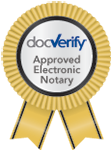When you need to use official documents in foreign countries, they often require verification in the U.S. before sending or taking them abroad. This process may involve notarization, Apostille/Authentication from the 50 states & DC Secretary of State, U.S. Department of State Apostille/Authentication, and Embassy/Consulate Legalization.
Certain documents, such as vital records (birth, death, marriage, and divorce certificates), public recorded documents, or court documents, may require a certified copy rather than notarization. In such cases, contact the issuing agency or office for a certified copy before starting the apostille process.
These certificates validate the seal and signature of a notary or public official on a document for acceptance in a foreign country. The process varies depending on the destination country
Hague Apostille Country: Requires an Apostille certificate issued by the 50 states & DC Secretary of State for local and state documents.
Non-Hague Apostille Country: Requires a multi-step authentication process for local and state documents, involving the Secretary of State, U.S. Department of State (if required), and the foreign country’s Embassy in DC. Federally-issued documents require authentication from the U.S. Department of State and the foreign country’s Embassy in DC.
Federal Courts Documents: Documents from federal courts (district courts) must be certified by the U.S. Department of Justice before presenting them to the U.S. Department of State for apostille or authentication.
All foreign language documents must include a certified or notarized English translation.



We are a legal entity. We are not affiliated, associated, endorsed by, or in any way officially connected with any government agency. The materials and information available at this website are for informational purposes only and not for the purpose of providing legal advice. We provide information and software and you are responsible for appropriately using this material.
© 2024 Per4mance Notary Services